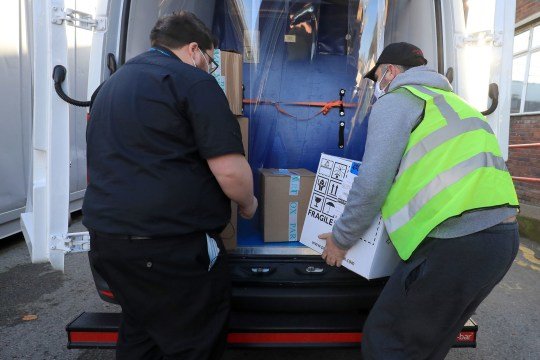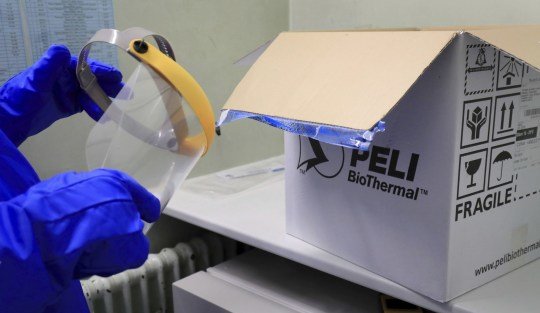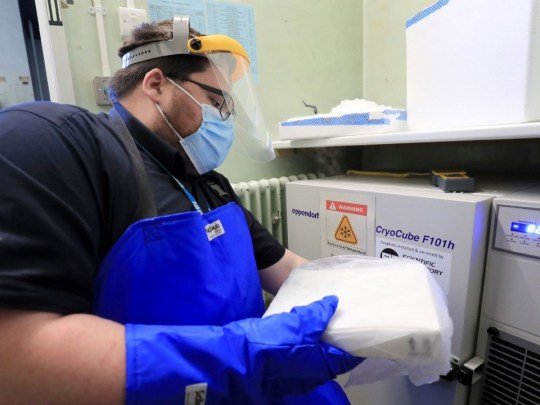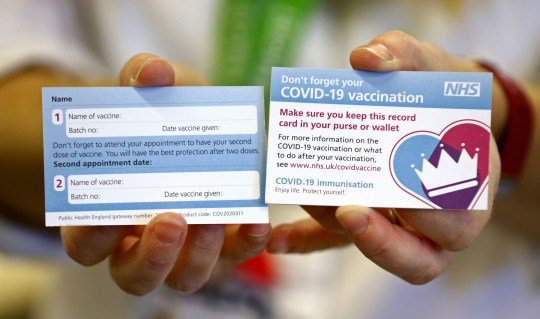
First batches of Pfizer Covid vaccine arrive at London hospital ahead of rollout
Images from Croydon University Hospital showed masked pharmacy technicians accepting the first shipment of the jab and placing them in freezers on-site. The vaccine needs to be stored at -70C before it can be used.
The vaccinations will then undergo administration at dozens of hospital hubs from Tuesday next week. The government has ordered 357 million doses of the jab, with 800,000 already sent by Pfizer.
Matthew Kershaw, Chief Executive of Croydon Health Services NHS Trust and Place Based Leader for Health said: ‘This is a pivotal moment for the country and for us in Croydon, as one of the first Hospital Hubs to receive the Covid-19 vaccine.
‘We’re delighted to be playing our part, vaccinating the most vulnerable people in our communities and ensuring the safety of our patients, our local people and our health and care professionals who have worked tirelessly throughout the pandemic.’
Louise Coughlan, joint chief pharmacist at Croydon Health Services, added: ‘The NHS has been planning ostensibly to deliver the largest vaccination programme in our history – so it’s really exciting.’

Public Health England and the NHS in England, Scotland, Wales and Northern Ireland are distributing the vaccine across the UK.
People aged 80 and over, care home workers and NHS staff will be among those first in line to receive the jab, before more doses become available.
GP surgeries in England have been told to start staffing Covid vaccination centres by December 14, Sky News reports.
Professor Stephen Powis, NHS national medical director, said: ‘Despite the huge complexities, hospitals will kickstart the first phase of the largest scale vaccination campaign in our country’s history from Tuesday.

‘The first tranche of vaccine deliveries will be landing at hospitals by Monday in readiness.
‘The NHS has a strong record of delivering large scale vaccination programmes – from the flu jab, HPV vaccine and lifesaving MMR jabs – hardworking staff will once again rise to the challenge to protect the most vulnerable people from this awful disease.’












